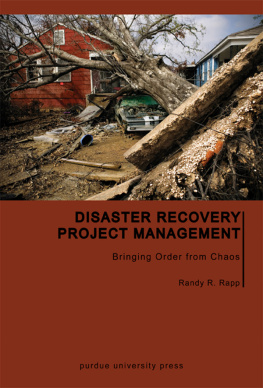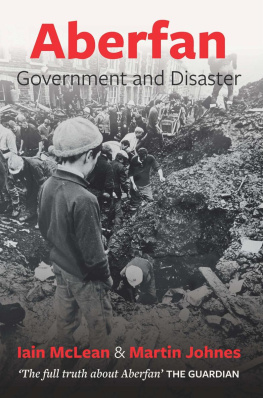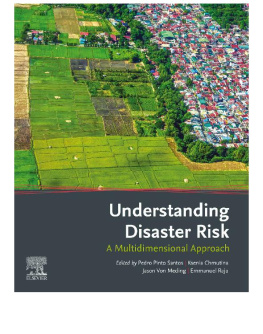
Each story is crafted to introduce readers to the sociology of disasters. While sharing key insights, Drabek invites readers to take a more compassionate view of the consequences of catastrophe. This sort of evidence-informed empathy may help to turn the rising tide of disaster losses.
Lori Peek, Ph.D., Professor, Department of Sociology,Director,Natural Hazards Center, University of Colorado Boulder
Reflecting his field studies, Drabek skillfully combines the art of storytelling with key research conclusions. His diverse characters bring life to disaster research in an unparalleled manner. This is an ideal book for both academic courses and casual reading.
David A. McEntire, Ph.D., Dean, College of Health and Public Service,Utah Valley University
The lessons of disaster science need to reach the hearts and minds of everyday people. This volume uses stories that are relatable, but remind us important lessons to do just that. If we had more work like this, there might be less suffering in the world.
Joseph E. Trainor, Ph.D., Associate Professor, Director, Disaster Science and Management Degrees, Biden School of Public Policy and Administration, Core Faculty Member,Disaster Research Center, University of Delaware
THE SOCIOLOGY OF DISASTER
In a book as illuminating as it is captivating, Thomas E. Drabek presents an in-depth analysis of the emotional impacts of disaster events and the many ripple effects that follow.
Through the technique of storytelling, a series of nine fictional stories where characters experience actual disasters of different types throughout the United States illustrate the vulnerabilities and resilience to enhance the readers understanding of disaster consequences. Designed for classroom use, each story is followed by an Analysis section wherein discussion and research paper topics are recommended. These highlight links to published research findings. A References section details citations for all works included. Brief commentary in a Notes section adds further connections to other disasters and relevant research studies.
The Sociology of Disaster is an important innovation in disaster education and will become an invaluable resource within universities and colleges that offer degrees in emergency management at both the undergraduate and graduate levels.
Thomas E. Drabek is Emeritus Professor of Sociology and Criminology at the University of Denver and continues his research on a part-time basis. His research has examined group and organizational responses to large-scale disasters. Professor Drabek has authored or co-authored 29 books and over 100 book chapters and journal articles. He served as the co-editor of the International Journal of Mass Emergencies and Disasters and was elected president of the International Sociological Associations Research Committee on Disasters. He frequently lectures at academic and emergency management workshops and conventions throughout the United States and around the world.
First published 2020
by Routledge
52 Vanderbilt Avenue, New York, NY 10017
and by Routledge
2 Park Square, Milton Park, Abingdon, Oxon OX14 4RN
Routledge is an imprint of the Taylor & Francis Group, an informa business
2020 Taylor & Francis
The right of Thomas E. Drabek to be identified as author of this work has been asserted by him in accordance with sections 77 and 78 of the Copyright, Designs and Patents Act 1988.
All rights reserved. No part of this book may be reprinted or reproduced or utilised in any form or by any electronic, mechanical, or other means, now known or hereafter invented, including photocopying and recording, or in any information storage or retrieval system, without permission in writing from the publishers.
Trademark notice: Product or corporate names may be trademarks or registered trademarks, and are used only for identification and explanation without intent to infringe.
Library of Congress Cataloging-in-Publication Data
A catalog record for this title has been requested
ISBN: 978-0-367-25304-2 (hbk)
ISBN: 978-0-367-25306-6 (pbk)
ISBN: 978-0-429-28709-1 (ebk)
To the memory of Henry Quarantelli who first introduced us to the Popular Culture of Disasters (PCD) and Russ Dynes who first introduced us to the importance of social capital
DISCLAIMER
This book contains nine original fictional short stories that are located within actual disaster events. The locations and most organizational and business names existed at the time of the writing. All of the characters, their descriptions, actions, motivations, and thoughts are entirely fictional. They are products of the authors imagination. Any resemblance to persons, living or dead, is purely coincidental.
In the summer of 2017, I participated in a roundtable session on the topic of teaching about hazards and disasters at the Annual Natural Hazards Workshop, hosted by the Natural Hazards Center, University of Colorado-Boulder. Timothy Haney, one of the session organizers, and I continued this conversation over the next few days and discussed the possibility of a assembling a special issue of the International Journal of Mass Emergencies and Disasters, the flagship journal of the International Sociological Associations Research Committee on Sociology of Disasters (ISA RC39), that would focus on this topic. We quickly discovered that the academic literature on the teaching of hazards and disasters was very limited. When Haney submitted an article on service learning in disaster to a leading journal in hazards and disaster studies, the editor told him that issues of teaching are somewhat marginal to the field and the article was desk-rejected. Our objective became clear. We strongly believe that teaching about hazards and disasters in the classroom is central to training the next generation of researchers and emergency managers and a special issue focusing on this topic would begin to move us in that direction.
We were so pleased when the special call for articles produced enough submissions for two issues; the first issue focuses on teaching strategies and experiences while the second issue focuses on curricular developments and innovations. This first special issue contains a fantastic article by Dr. Thomas E. Drabek called Trapped: Expanding Student Understanding of the Multiorganizational Coordination through the Use of Fiction. In this article, he introduces us to the use of fictional accounts of disaster to build an understanding of the challenges that disaster responders face. The goal, as Drabek explains, is to enhance students empathy with both disaster responders and victims. Dr. Drabek is one of the foremost authorities on the social scientific study of disasters and an educator who has a strong devotion to the teaching of students from a variety of backgrounds and institutional settings. He was a student of pioneering sociologists E.L. Quarantelli and Russell R. Dynes, and served as one of their first student research associates from 19631965 at their newly created Disaster Research Center at The Ohio State University.
Drabek has since had a distinguished career as both an educator and researcher. He served as editor of the International Journal of Mass Emergencies and Disasters







